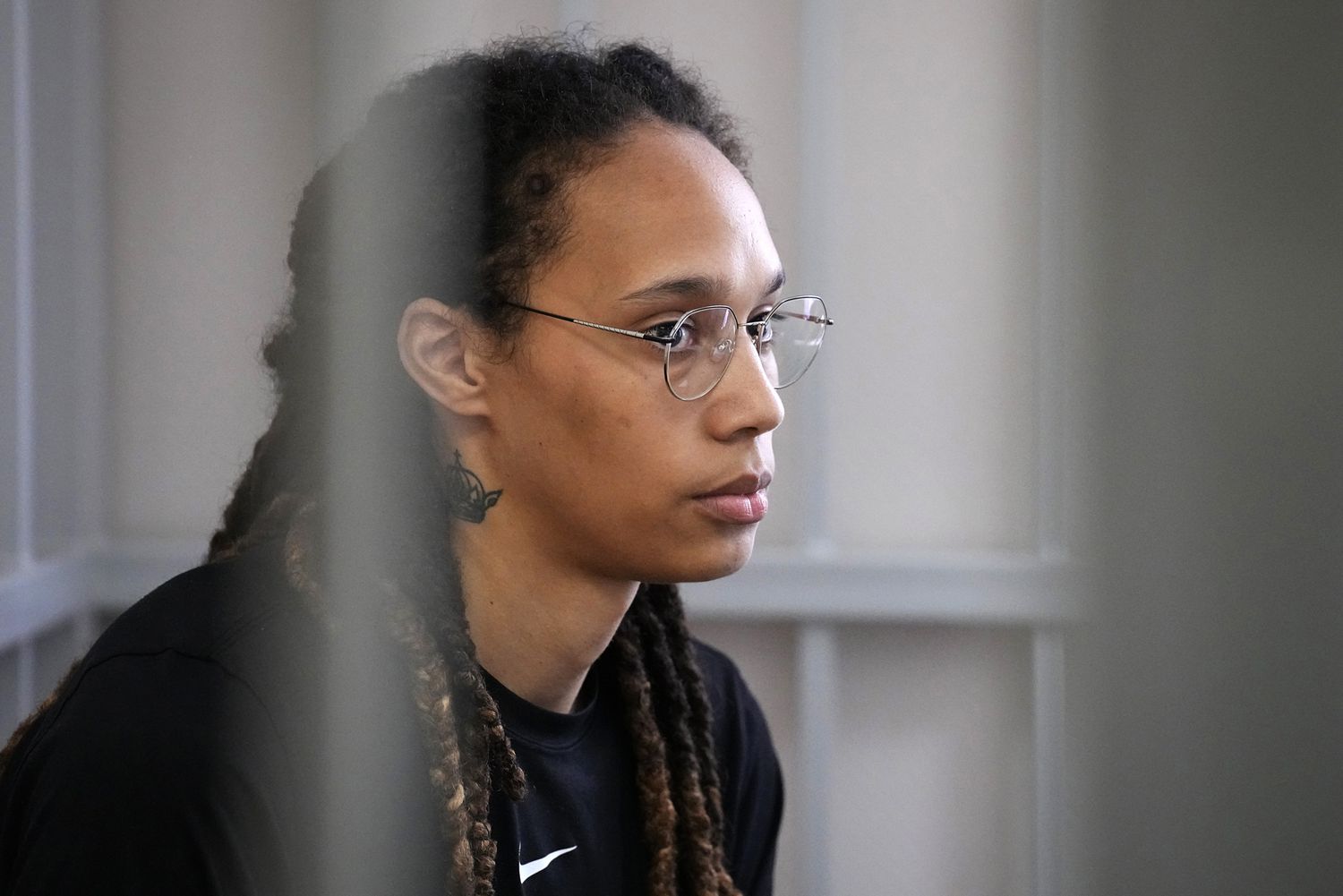:max_bytes(150000):strip_icc():focal(959x479:961x481)/brittney-griner-court-072722-2-c8cc1d940bbb431e8602d699e505dae6.jpg)
Brittney Griner is getting sent to the harshest category of penal colonies for women, a so-called general regime prison, her lawyers tell PEOPLE.
Many women in Russia are sent to one of the 106 mixed gender low-security settlement penal colonies, but Griner’s conviction for drugs means she will be serving her nine-year sentence in one of the 35 high security correctional institutions for women only.
“It’s not an easy life in a settlement colony, but it’s a lot harsher in a general regime colony” Natalia Filimonovna, from the NGO Russia Behind Bars, tells PEOPLE.
Sarah Krivanek, another American woman sentenced to jail in Russia, told a deportation hearing in Ryzan yesterday that her nine months in a nearby settlement colony were “hell.” But unlike settlement colonies, the high security prisons have far stricter rules and are circled by guards in towers with automatic weapons, much like the Stalin-era gulags.
Krivanek was sentenced to 16 months for causing “slight physical harm” to her roommate, but Griner’s felony charge, of bringing a vape pen with hash oil into the country, is considered a “grave” crime, punishable in the highest category prison.
It is not yet known exactly which of the 35 colonies Griner is being sent to, but according to Galina Yakovleva, a Russian woman who served seven years under the same statute as Griner, she may well be surprised by the support of her fellow inmates.
“We’re living in times when you get sent to a colony for the slightest possible reason, and so everyone feels that injustice keenly and unite together to support each other, whoever you are,” she tells PEOPLE.
KIRILL KUDRYAVTSEV/AFP via Getty
“The majority of inmates are in for drug offenses,” she goes on. “I’m not at all surprised Brittney got nine years; it’s not unusual. All I can do is feel for her.”
Krivanek told PEOPLE in a phone interview from her deportation cell that “a drugs crime is seen as a crime against the nation, on a par with murder, and the sentence reflects that.” She also noted that inmates who disobeyed the rules in her colony were shipped off to a general regime colony as punishment.
Drawn-out transfers to a penal colony are a longtime practice in Russia. Yakovleva explains that Griner will now be kept in a central prison for convicts until a place is found for her in the overcrowded penitentiary system.
“It can take from two weeks to two months,” she says. Yakovleva, who now runs a charity to support female inmates with children, says she was “terrified” when she first got there. “You don’t know what’s ahead of you. It’s all grim and grey. They take away all your belongings and give you a uniform and a headscarf which who you have to wear all the time.”
RELATED VIDEO: Brittney Griner ‘On Her Way’ to Russian Penal Colony, Attorneys Say
Inmates in the settlement colonies are permitted to wear their own clothes, keep their valuables and have money.
“It’s a horrifying experience. They take everything that belongs to you — that makes you a person — away from you. It’s run like a military boot camp.”
General regime prisons hold around 40,000 women. “The rules are much stricter there” says Ivan Melnikov of the International Committee for Human Rights. “Unlike the low security prisons, you are locked into your cells and are not permitted to walk around the territory freely or go beyond the prison walls for any reason.”
“An inmate may be rewarded for good behavior after three or four years by being sent to a settlement colony,” he adds, saying that in his opinion the hardest thing for Griner will not being able to speak the language and understand the intricate rules. “For example, you have to show deference to the guards at all times and greet them in a certain way.” If you break the rules, you can be sent to an isolation cell.
However, despite widespread reports of bullying and infighting, he believes Griner will be protected by the prison administration for fear of sparking an international scandal.
Like Yakovleva, he hopes that Griner will not be targeted by inmates for being Black, American and gay. “People are faceless there,” Melnikov says. “What matters is if you are a good person and can find friends.”
The prisons contain a number of foreigners with language problems, mostly from former Asian Soviet republics. Gay relationships are also not uncommon but are punishable by incarceration in an isolation cell. According to article 116 of the Penal Code of the Russian Federation, “lesbianism” is a “malicious violation of the law.”
Ethan Miller/Getty
Galina says that women are grouped into “detachments” who share a room of up to 100 people sharing four sinks and four toilets. “You are woken at 5 a.m. and given twenty minutes to wash and dress. We worked as seamstresses from 7 a.m. to 6 a.m.”
Unlike the low security prisons where an unlimited number of visits and food packages are allowed, the high security prisons restrict this to 12 visits and 12 weight limited packages a year.
She adds that there was one volleyball court, but Brittney will be able to ask friends to send her a basketball hoop and can organize games in her leisure period. But she adds that “unlike the settlement colony, you are hardly permitted any time to yourself.”
“The worst thing about being in a general regime colony is being kept behind high walls ringed with barbed wire with look-out posts,” she says. “And you know you have to stay within that small, guarded space for what seems to you like forever.”








